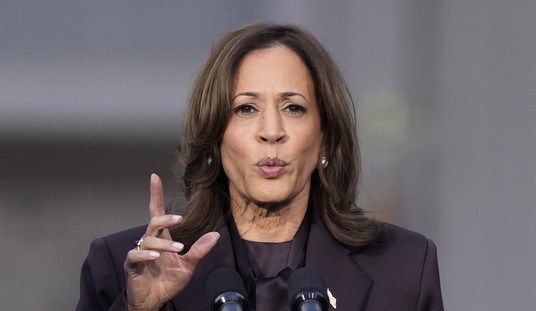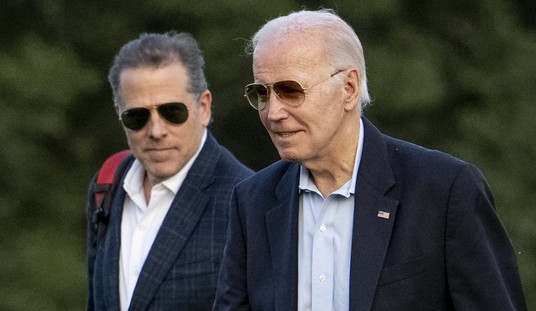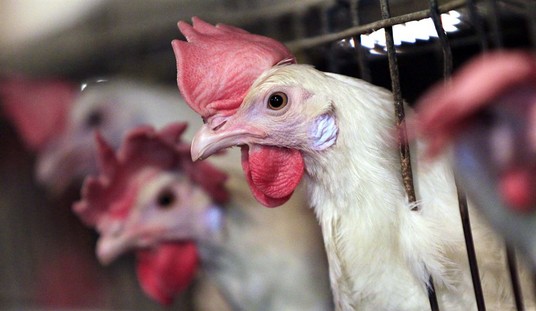 The Obama administration firmly believes that one of the contributors to our national debt and budget deficits is the fact that the wealthy give to charity. His jobs bill makes this clear by proposing a cap on the deduction high income earners (the one’s most likely to take advantage of the deduction as well as provide the largest contributions) can claim when engaging in philanthropy. Currently, anyone earning over $250k per year is able to deduct up to 35 cents for every $1 they contribute to charity for up to 50% of their income. Under President Obama’s proposal, that would be dropped to 28 cents per $1.
The Obama administration firmly believes that one of the contributors to our national debt and budget deficits is the fact that the wealthy give to charity. His jobs bill makes this clear by proposing a cap on the deduction high income earners (the one’s most likely to take advantage of the deduction as well as provide the largest contributions) can claim when engaging in philanthropy. Currently, anyone earning over $250k per year is able to deduct up to 35 cents for every $1 they contribute to charity for up to 50% of their income. Under President Obama’s proposal, that would be dropped to 28 cents per $1.
According to the Center for Philanthropy at Indiana University, the impact on overall charitable giving would be “relatively small” even had the administration administered these caps in 2009 & 2010.
Our estimates indicate that if the Administration’s proposals had taken effect in 2009 and 2010, total itemized giving would have declined by 0.4 percent in the first year and by 1.3 percent in the second year,” said Patrick M. Rooney, executive director of the Center on Philanthropy. “This suggests a relatively small direct impact, but combined with the weak economic climate, funding reductions and increased demand for services already affecting some nonprofits and their constituents, these changes are likely to have an additional negative effect in the long term.
See? Just 0.4% to 1.3%! A paltry sum! In fact, that would’ve only translated to a barely noticeable $820 million reduction in 2009 and totally insignificant $2.43 billion decline in 2010. A pittance!
The report goes on to say that the greatest affect to the sum of charitable giving annually is less about caps and more about economic conditions. Something the administration completely agrees with. Or at least they did in 2009 when charitable caps were first being discussed.
Back then, optimism was on the side of the Obama administration. They were so certain that the economy was going to turn around because of the Federal Stimulus, that they poo-pooed any notion that requesting these caps was an attack on charity. Furthermore, then Office of Management and Budget Director, Peter Orszag, agreed that a bad economy would be the wrong time to introduce those proposals.
The evidence suggests that many factors affect charitable contributions, including the desire to help the charity and overall economic conditions.
In fact, the administration wouldn’t dream of doing such a thing. They fully intended, it seemed, to push off their request that charities join in the economic sacrifice, waiting for a time when their plans had proceeded as they had foreseen:
First, the proposed tax change would not be imposed during a recession (see my previous post on that topic). Instead, it would begin in 2011 – at which point we expect the economy to be recovering.
And while it’s true that the recession has officially been over for some time now, the administration’s standards on this issue seemed to not be limited to only that worse case economic scenario. Their original plan was to include the decrease in charity caps concurrent with the expiration of the “Bush Tax Cuts” when they were set to expire at the beginning of 2011. Quoting from the same OMB post, they seemed to agree that charitable giving can be negatively impacted by implementation of such a policy in any time of economic struggle:
The Budget proposes that the tax cuts currently enjoyed by those with incomes above $250,000 be allowed to expire at the beginning of 2011, at which point the economy should have recovered from the current downturn.
So here we are in 2011, the age of recovery. By the administration’s own predictions, it should be a great time to hit up charities to stop hoarding money, but instead, as we all well know, the economy continues to disappoint.
By some accounts, the economy is worse now that it was when the recession began. The Commerce Department said that on a per-capita basis, the nation’s total output of goods and services remains 3% lower than it was at the end of 2007 which the the National Bureau of Economic Research (NBER) says was the beginning of the Great Recession. Unemployment stands at 9.1% with job gains falling short of population growth. Median household incomes, which declined 3.2% to $53,518 during the recession (2007-2009), have actually plummeted by another 6.7% to $49,909 between mid- 2009 and mid-2011.
In spite of all this economic turmoil, which the vaunted Recovery Act either exacerbated of at best did nothing to help, as of last year, charitable donations were actually up.
Giving USA Foundation™ and its research partner, the Center on Philanthropy at Indiana University, today announced that total charitable contributions from American individuals, corporations and foundations were an estimated $290.89 billion in 2010, up from a revised estimate of $280.30 billion for 2009. The 2010 estimate represents growth of 3.8 percent in current dollars and 2.1 percent in inflation-adjusted dollars.
“Our revised estimates show that 2008 and 2009 saw the largest drops in giving in more than 40 years as a result of the Great Recession, exceeding previous recessions’ impact on giving,” said Edith H. Falk, chair of Giving USA Foundation™. “Despite the fragile economic recovery, though, Americans continued–and even increased–their support of organizations and causes that matter to them in 2010.
Turns out that the greedy American capitalist pigs do have a heart. But what about those selfish money-hoarding one-percenters? Current data was hard to come by, but the CBO notes that in 2008 (one of the years citing a dramatic decrease in charitable giving) high income earners still belted out more of their income to charity than any other group.
Higher-income households account for a significant portion of individual giving. People who reported AGI of at least $100,000 in 2008 were responsible for about 58 percent of charitable giving by taxpayers, although they made up less than 13 percent of tax filers. At the top of the income scale, less than 1 percent of taxpayers had AGI over $500,000, but they made 24 percent of the total charitable contributions by taxpayers in that year.
So with all of that charitable giving from these high tax brackets, I guess it’s really no surprise the government wants their ‘cut,’ even if it costs charities in the short and long term and regardless of the state of the economy. The only real victims will be the children, who are just more victims in a class war waged by a president determined to make all things derive from the state.
But all of this leaves me asking a simple question that I hope someone in the media who is allowed to speak to the administration without being investigated, might ask: “Mr. President, considering the position of your administration in 2009 that charity does best in a growing economy and that it would unadvisable to make changes to charitable deductions during a time of economic fragility, do you believe that a) Our economy has recovered? (In which case a follow-up asking how this is possible in the face of overwhelming evidence to the contrary), or b) Your administration has decided that charities are simply not sacrificing in this economy like the rest of us and needs to ‘step up?’”
Clarification on this would serve little more than satisfying my or anyone else’s own curiosity as to how he can intellectually justify such an action. When my church heads down to Haiti in March, I’d just really like to be able to send a message with them to inform the kids there that there would’ve been more contributions, but the President of the United States thought that investing in luxury electric cars that no one wants was too important to let charity’s continue to get away with not paying their fair share.













Join the conversation as a VIP Member